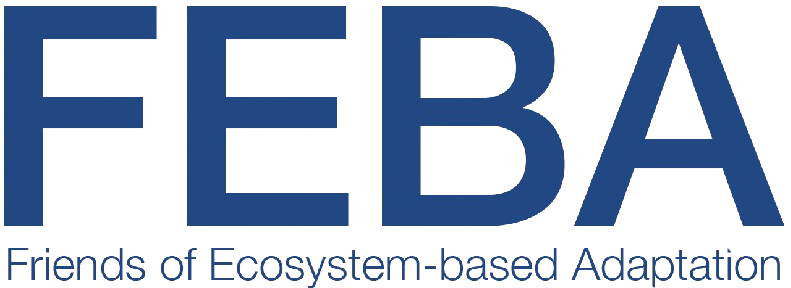La 11e Journée de la connaissance sur l'adaptation basée sur les écosystèmes (EbA) a réuni des experts, des décideurs politiques et des praticiens à Bonn, en Allemagne, pour faire le point sur plus d'une décennie de progrès et tracer la voie à suivre. COP30 on the horizon, the event focused on building momentum for scaling EbA through collaboration, shared learning, and practical action.

From Conservation to Communities: EbA’s Evolving Mandate
Opening the day, Ali Raza Rizvi, head of the Union internationale pour la Conservation de la Nature’s (IUCN) Climate Change and Energy Transition Team, reflected on how EbA has grown from its roots in conservation to a more people-centred approach. He stressed the value of learning from past missteps and building on collective experience.
Remarks from the International Climate Initiative (IKI) and the UN Environment Programme (UNEP) underscored the need for faster, more inclusive implementation—especially amid climate and biodiversity crises—calling for improved communication, innovation, multilateralism and integration of EbA into policy and planning. Germany reaffirmed its support through continued funding while UNEP and IUCN called for closer alignment across climate, biodiversity, and land agendas.
Adapting to a Shifting Landscape
To remain effective in a rapidly changing world, EbA must respond to political, environmental, and financial uncertainties. Panellists stressed that increasing integration of EbA in national adaptation plans (NAPs) needs decision-makers’ buy in through messaging that connects EbA with top country priorities, such as public health, jobs, and disaster preparedness. EbA can then be built into NAPs through multi-sectoral planning, strong monitoring systems, and innovative financing approaches—including debt-for-nature swaps, green and blue bonds, ecosystem service payments, and insurance for smallholders—were cited as key to unlocking inclusive, long-term funding. These tools can align financial flows with biodiversity, climate, and development goals when backed by enabling policies and institutional readiness.
Local governments, particularly in the Global South, were highlighted as critical implementers of EbA, yet often face challenges in accessing public climate finance due to limited technical resources. Networks like ICLEI – Local Governments for Sustainability are helping close this gap by connecting cities with resources, building technical know-how, and translating global goals into local action.
Centring People and Strengthening Systems for Lasting Impact
Translating EbA’s ecological benefits into relatable, human-centred outcomes was identified by ICLEI as essential to gaining political traction. Visual tools and local networks were recommended to help convey messages in accessible, actionable ways.
The conversation also emphasised psychological resilience—the capacity of individuals and communities to adapt, recover, and thrive amid stress and disruption. Recognising and supporting this aspect is crucial to achieving transformative adaptation on the ground. Organisations that are championing this concept through their work are the Billion Minds Institute et la World Resources Institute, which are co-chairing Les amis d'Adaptation fondées sur les Écosystèmes’s (FEBA) new Working Group on Psychological Resilience and EbA.
Robust monitoring and evaluation were highlighted as vital not just for measuring success, but for building trust with funders and guiding adaptive implementation over time.

Evidence that Speaks: Linking Science and Action
The technical panel showcased the value of community-driven, locally adapted nature-based responses that integrate traditional and Indigenous knowledge. Recent innovations highlighted during the event include using genetically resilient strains in the Caribbean for coral propagation, ridge-to-reef planning in Saint Lucia, sacred rituals and totems embedded into marine protected area planning in Senegal, and ancestral Mayan practices and cosmology integrated into EbA frameworks in Guatemala.
Speakers called for stronger connections between research and practice—emphasising the role of cooperative and traditional knowledge, with several examples of successful implementation shared on Panorama Solutions. Community-based monitoring, vulnerability assessments, and partnerships with universities were noted by La GIZ as essential tools for measuring impact and sustaining results. Capacity building, cost-effectiveness analysis, and strategic communication were also identified as critical to replication and attracting investment.
Collaboration in Action: The Role of FEBA
The FEBA network remains a key driver of knowledge exchange and coordinated action across sectors. It is flexible, member-led working groups address themes including the Cadre mondial pour la biodiversité Kunming-Montréal, loss and damage, and the linkages between health, climate, and nature. Participants were invited to engage with existing groups or propose new ones to support FEBA’s mission of advancing ecosystem-based solutions for resilient development.

Accelerating Change: Solutions for Scaling Up
Four breakout groups, facilitated by UNEP, the International Institute for Sustainable Development (IISD), the United Nations Development Programme (UNDP)le United Nations University Institute for Environment and Human Security (UNU-EHS), GIZ and the Secrétariat de la CDB, tackled some of the most pressing barriers to EbA implementation, identifying actionable recommendations to take on by the EbA community in their work and through COP30:
- Inclusive Governance: Participants called for the integration of rights-based approaches, Indigenous knowledge, gender equity, and intergenerational justice into national policy—alongside long-term funding that respects free, prior, and informed consent.
- Private Sector Engagement: Strategies included building tailored mechanisms to attract diverse investors, using blended finance to de-risk early action, and positioning EbA as a smart, future-proof investment.
- Bridging Policy and Practice: Overcoming fragmented planning and inaccessible technical language was seen as key. Participants urged greater inclusivity—even with resistant stakeholders—and the use of tangible co-benefits to gain buy-in.
- Monitoring and Evaluation: A shared vision, flexible indicators, and long-term funding were identified as core elements of scalable M&E systems. Institutional learning platforms were recommended to capture lessons and ensure continuity.
Across all discussions, the message was clear: demonstrating economic, ecological, and social benefits—and communicating them clearly—will be vital to growing EbA’s reach and impact.

Looking Ahead: From Projects to Long-Term Partnerships
In closing, participants reflected on the need to shift from short-term, project-based work to programmatic, adaptive strategies that integrate EbA into finance, development, and planning systems. Long-term success will depend on breaking silos, building trust, and crafting solutions that are not only evidence-based, but also inclusive and scalable.
Participants were encouraged to stay engaged—through FEBA working groups, policy dialogues, and collaborative efforts—to co-create the integrated solutions needed for a climate-resilient future.
See event agenda details ici

